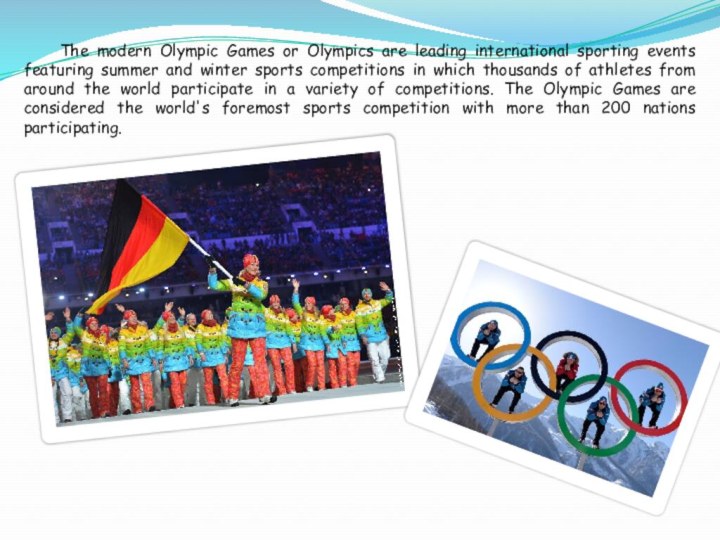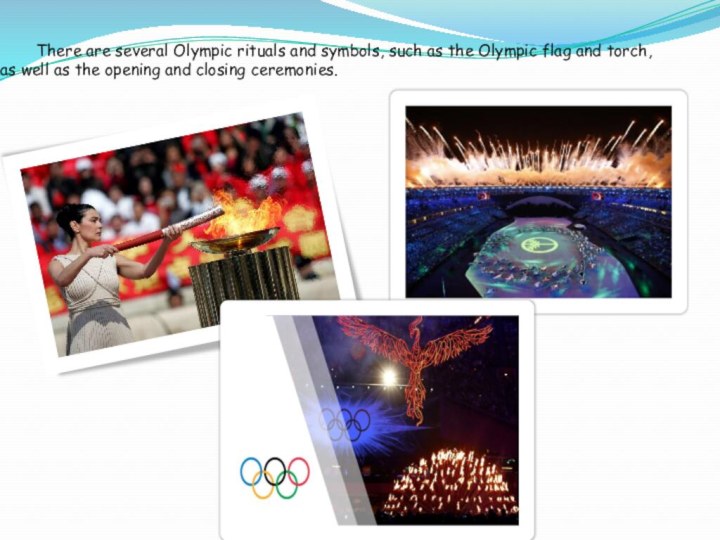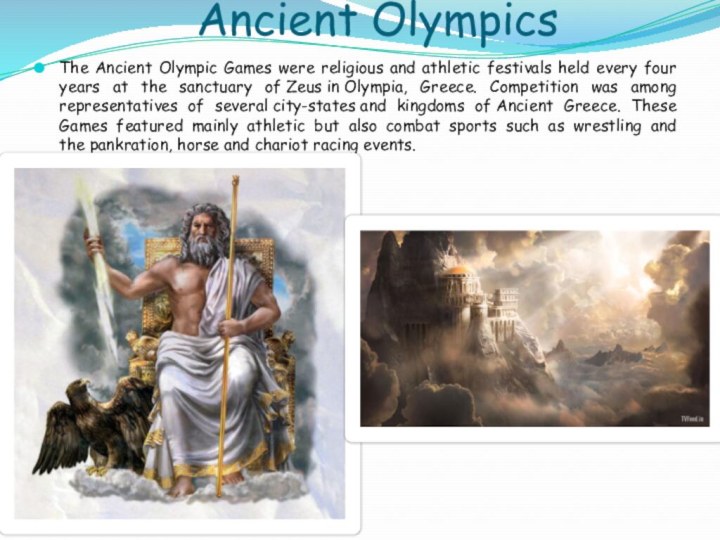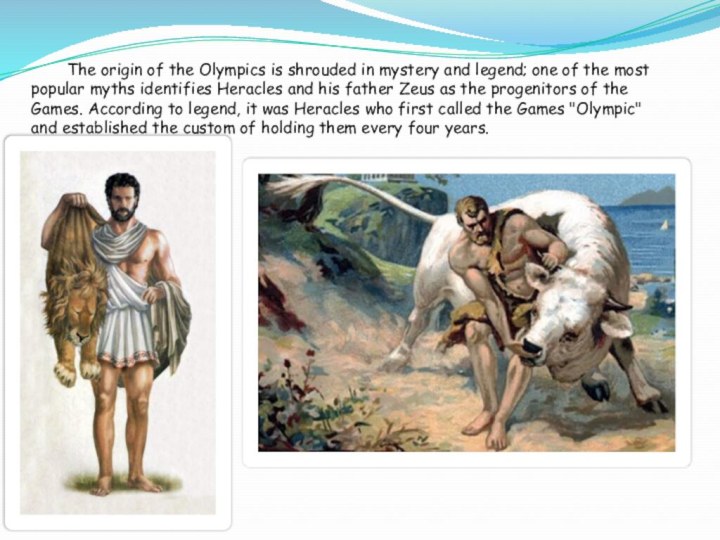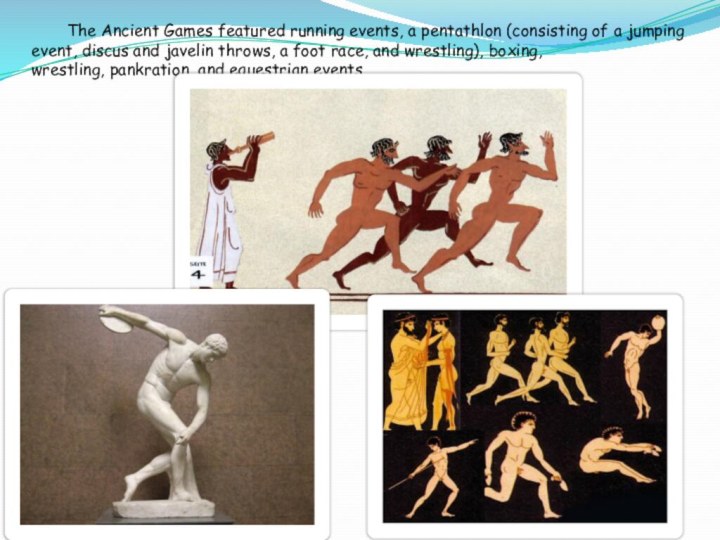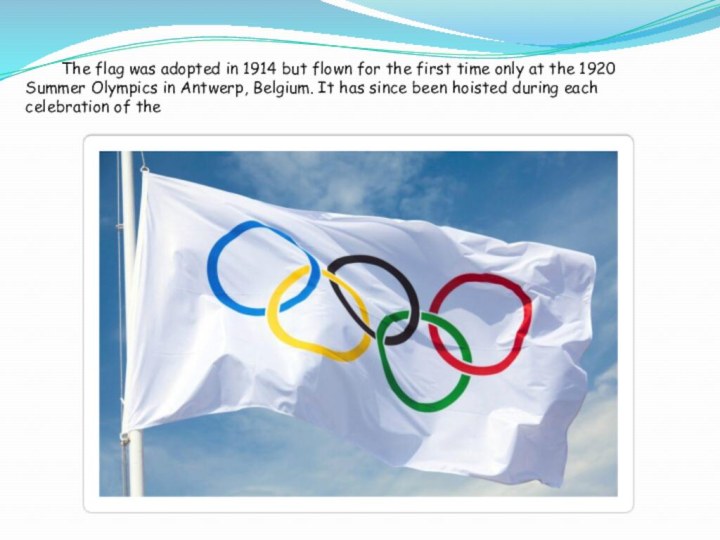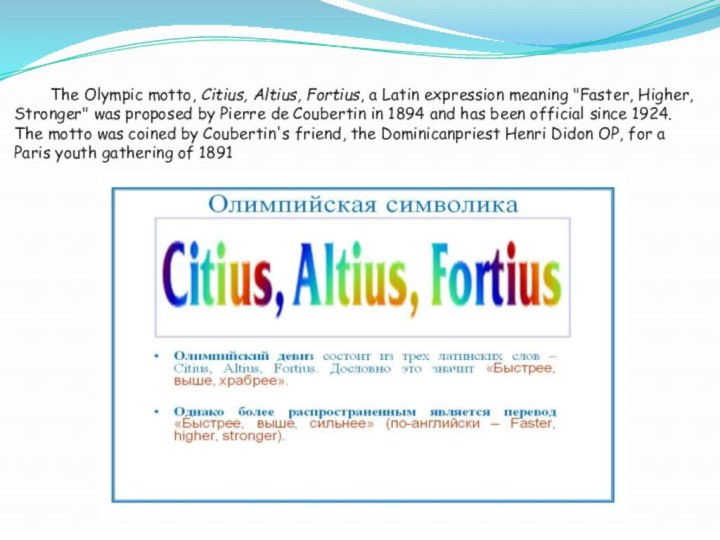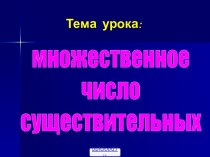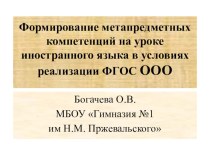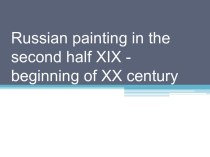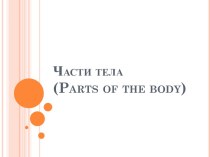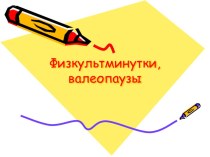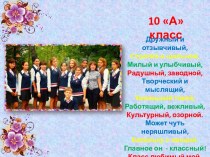Слайд 2
The modern Olympic Games or Olympics are leading
international sporting events featuring summer and winter sports competitions
in which thousands of athletes from around the world participate in a variety of competitions. The Olympic Games are considered the world's foremost sports competition with more than 200 nations participating.
Слайд 3
The Olympic Games are held every four years,
with the Summer and Winter Games alternating by occurring
every four years but two years apart. Their creation was inspired by the ancient Olympic Games, which were held in Olympia, Greece, from the 8th century BC to the 4th century AD.
Слайд 4
Baron Pierre de Coubertin founded the International Olympic
Committee (IOC) in 1894, leading to the first modern
Games in Athens in 1896. The IOC is the governing body of the Olympic Movement, with the Olympic Charter defining its structure and authority.
Слайд 5
The evolution of the Olympic Movement during the
20th and 21st centuries has resulted in several changes
to the Olympic Games. Some of these adjustments include the creation of the Winter Olympic Games for snow and ice sports, the Paralympic Games for athletes with a disability.
Слайд 6
There are several Olympic rituals and symbols, such
as the Olympic flag and torch, as well as the opening and closing
ceremonies.
Слайд 7
Over 13,000 athletes compete at the Summer and
Winter Olympic Games in 33 different sports and nearly
400 events. The first, second, and third-place finishers in each event receive Olympic medals: gold, silver, and bronze, respectively.
Слайд 8
Ancient Olympics
The Ancient Olympic Games were religious and
athletic festivals held every four years at the sanctuary
of Zeus in Olympia, Greece. Competition was among representatives of several city-states and kingdoms of Ancient Greece. These Games featured mainly athletic but also combat sports such as wrestling and the pankration, horse and chariot racing events.
Слайд 9
The origin of the Olympics is shrouded in
mystery and legend; one of the most popular myths
identifies Heracles and his father Zeus as the progenitors of the Games. According to legend, it was Heracles who first called the Games "Olympic" and established the custom of holding them every four years.
Слайд 10
The Ancient Games featured running events, a pentathlon
(consisting of a jumping event, discus and javelin throws, a foot
race, and wrestling), boxing, wrestling, pankration, and equestrian events.
Слайд 11
Symbols
The Olympic Movement uses symbols to represent the
ideals embodied in the Olympic Charter. The Olympic symbol,
better known as the Olympic rings, consists of five intertwined rings and represents the unity of the five inhabited continents (Africa, America, Asia, Australia and Europe). The coloured version of the rings—blue, yellow, black, green, and red—over a white field forms the Olympic flag. These colours were chosen because every nation had at least one of them on its national flag.
Слайд 12
The flag was adopted in 1914 but flown
for the first time only at the 1920 Summer Olympics in
Antwerp, Belgium. It has since been hoisted during each celebration of the
Слайд 13
The Olympic motto, Citius, Altius, Fortius, a Latin expression meaning "Faster, Higher,
Stronger" was proposed by Pierre de Coubertin in 1894 and has
been official since 1924. The motto was coined by Coubertin's friend, the Dominicanpriest Henri Didon OP, for a Paris youth gathering of 1891

